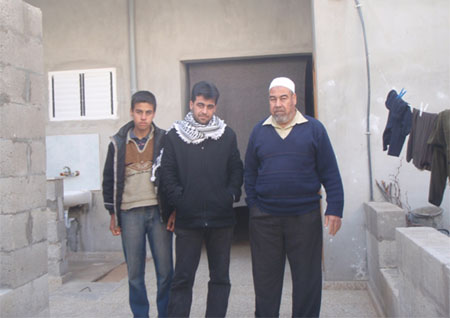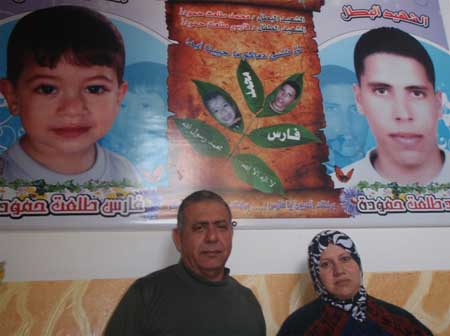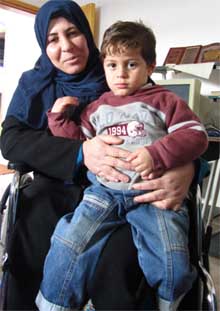Tag: Palestinian Centre for Human Rights
-
12 January 2009 – The Ayad family
12 January 2012 | Palestinian Centre for Human Rights “If there is another war I won’t be moving, even if we die there, I don’t want to go through that again” On 12 January 2009, the Ayad family home in the Zaytoon area of Gaza City was bulldozed by Israeli forces. Rezeq Ayad, 60, his…
-
11 January 2009: The Hamouda family
11 January 2012 | Palestinian Centre for Human Rights “I cannot even pick up another child in my arms, I had a new grandchild, he is six months old, but I have yet to take him in my arms, I feel that place belongs to Fares” In the early morning of 11 January 2009, the…
-
10 January 2009: Wafa al-Radea
10 January 2012 | Palestinian Centre for Human Rights “When I left my children I was walking and my children had not seen my wounds. The most difficult moment was when I came back with only 1 leg and many injuries. I was a different Wafa. When I came back I was supposed to happy…



